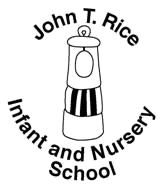EYFS
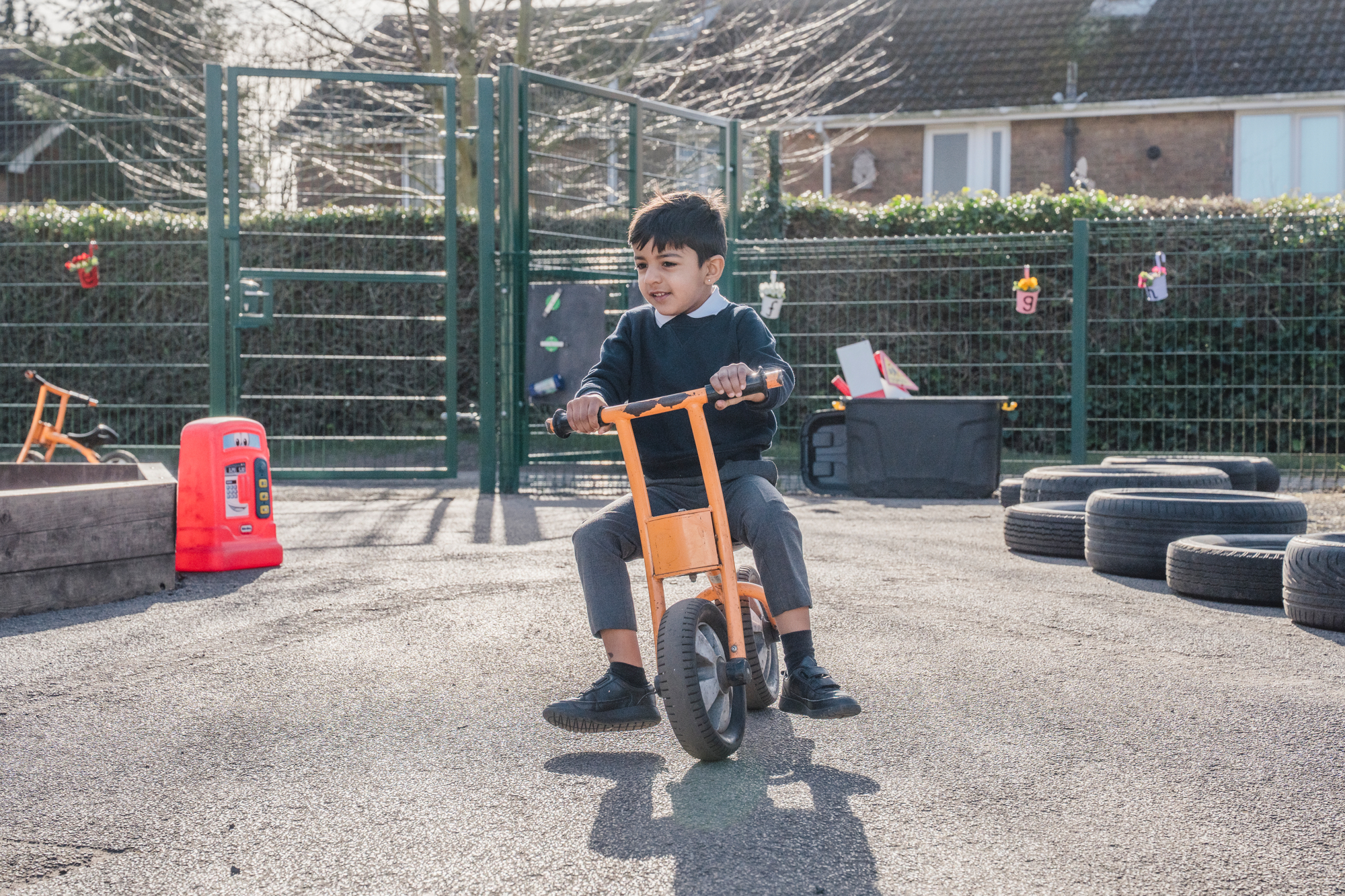
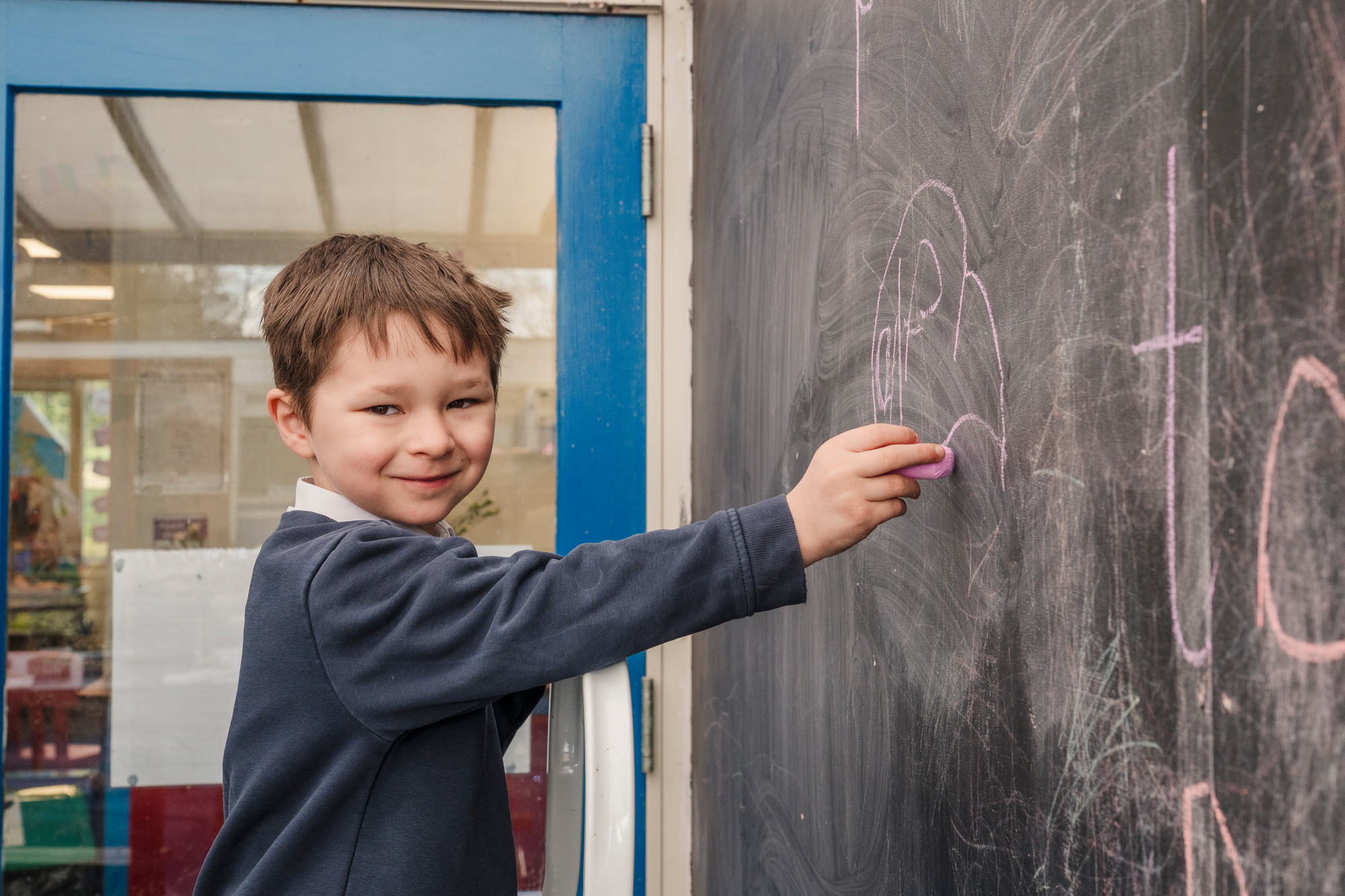
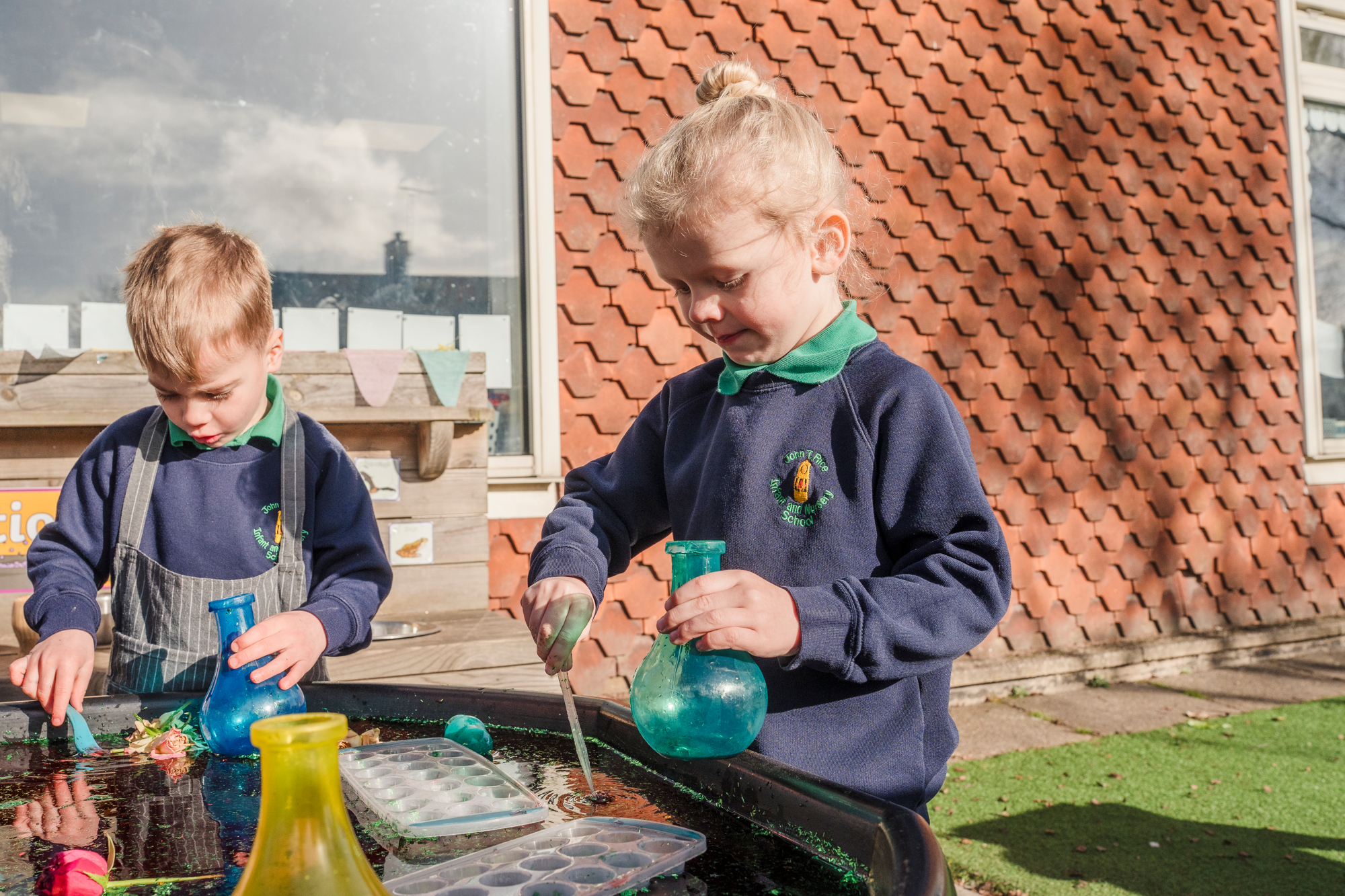
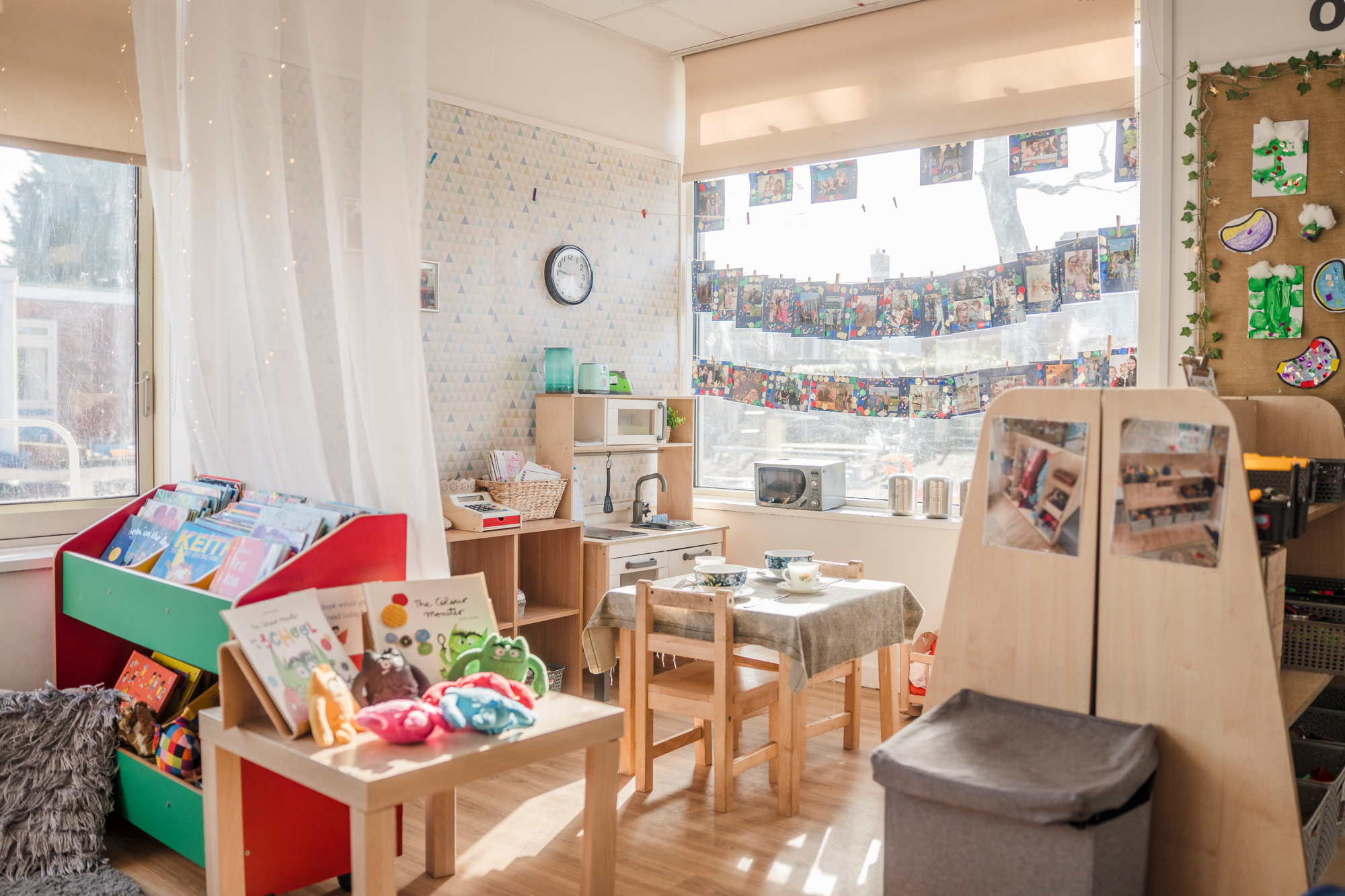
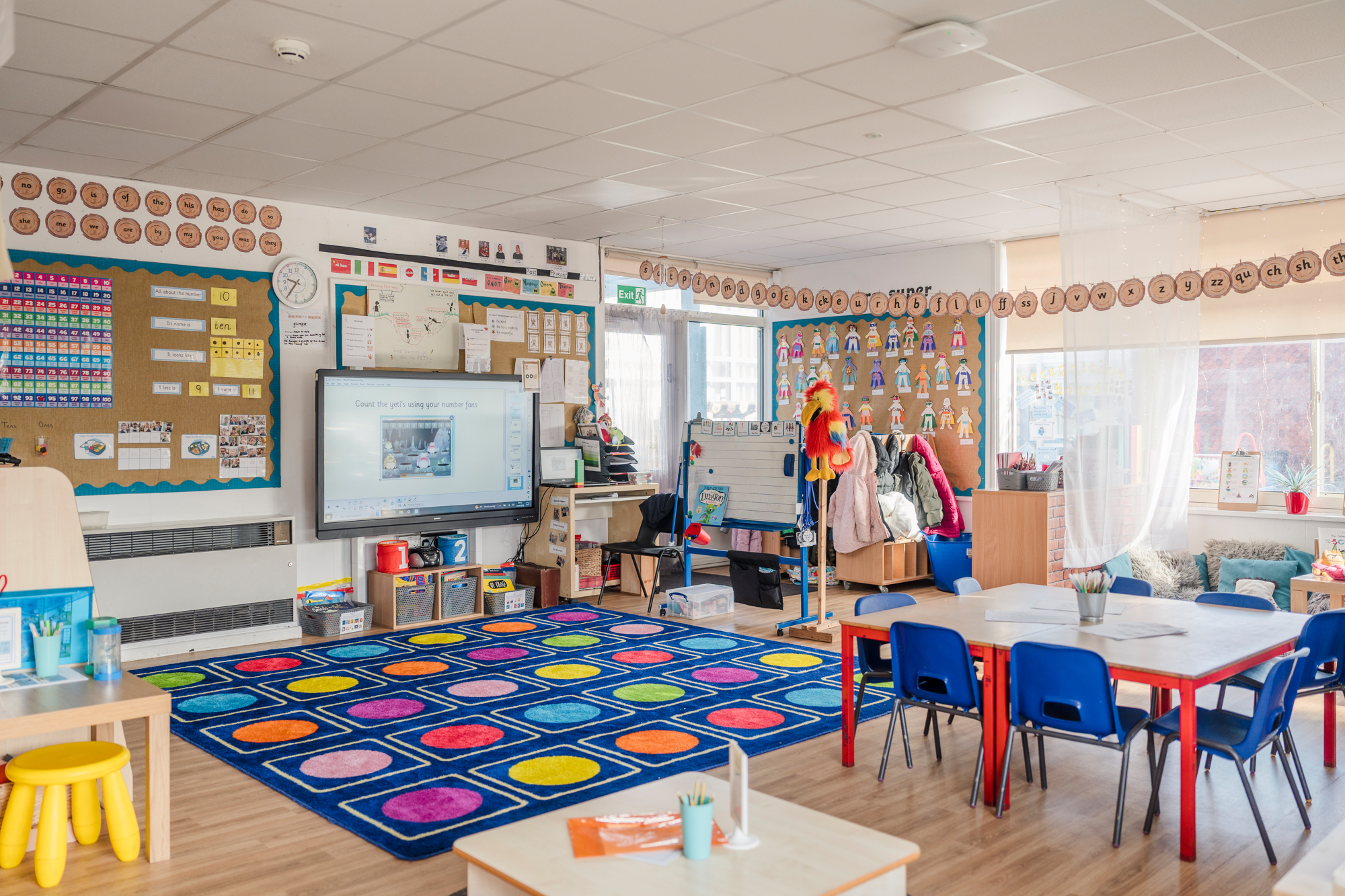
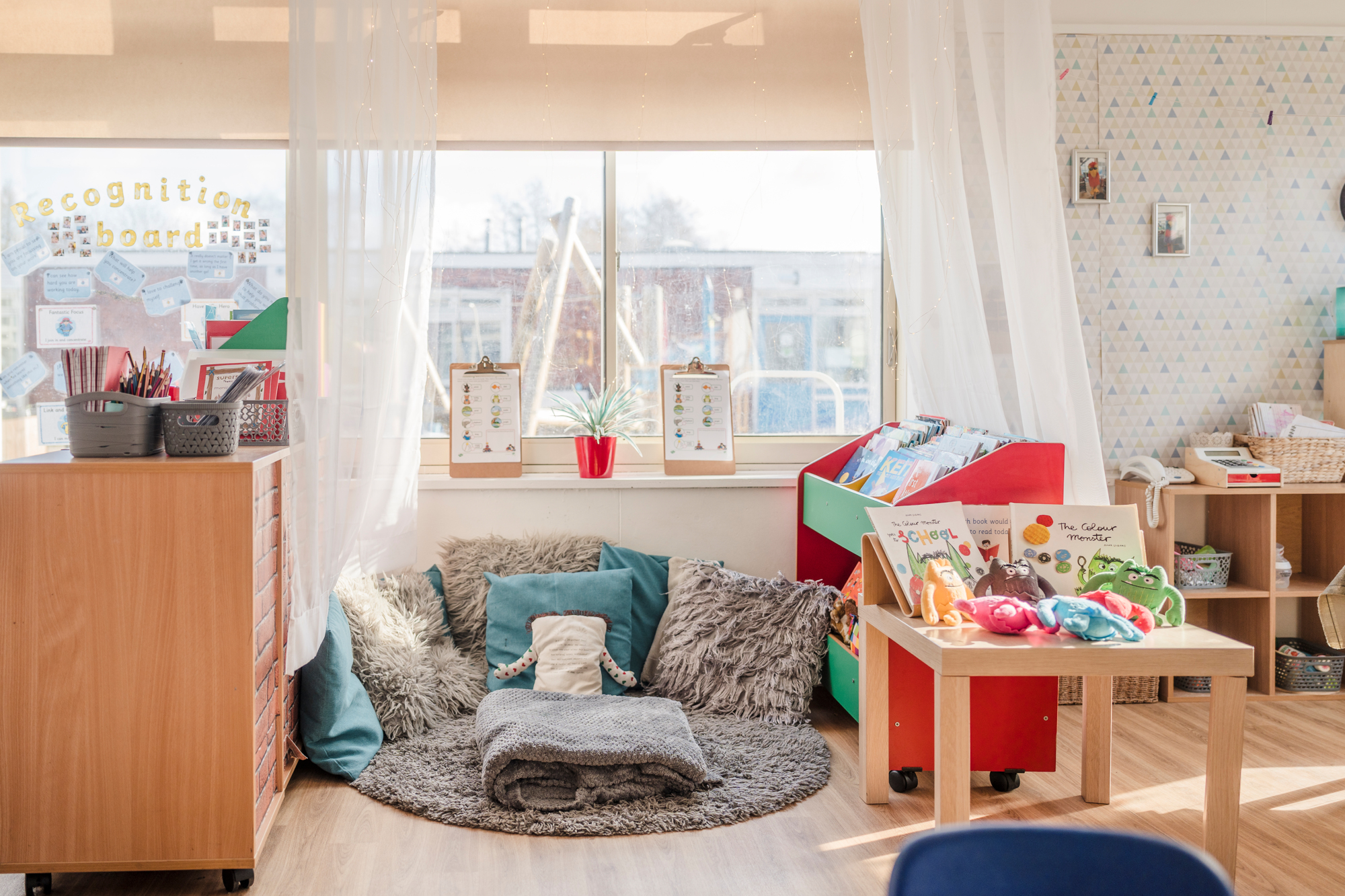
At JTR, we follow our school’s motto of ‘Aim high and shine.’ In our Early Years Foundation Stage our ambitious and child-centred curriculum provides all children with the knowledge, skills and understanding they need to be curious, resilient, independent learners. We provide an education that does all of this and gives children the best chance to become well-rounded, happy individuals, ready to succeed in an ever-changing world.
We recognise the importance of giving our children the best possible start to their education. This is achieved by planning and implementing teaching and learning opportunities that support them in reaching their full potential and prepare them for the next step in their educational journey. Our EYFS curriculum is based on the children's interests, themes, continuous provision activities and focused tasks.
Memorable learning experiences allow our children to retain knowledge, apply skills and develop links in their understanding. This is supported by well-trained, caring and compassionate staff who see every child at JTR as unique. By building positive relationships with the children, staff support their individual needs, which in turn helps them reach their full potential.
Through our broad and balanced curriculum, we also aim to develop children's cultural capital so they are able to engage with society and understand the importance of being a good UK and global citizen.
In Foundation 1 and Foundation 2 we prioritise creating a 'language-rich' environment through the use of songs, nursery rhymes, stories and providing time for adult/ child and peer-to-peer interaction. We understand high-quality adult/ child interactions are essential, as is encouraging home learning focused upon good quality interaction. Highly trained staff in language development ensure that every interaction is positive and progressive, allowing children to flourish and gather words at a pace. This supports every child in EYFS to become confident communicators ready for their next stage of learning.
We have strong relationships with our parents and encourage families to be a part of school and their child's learning. Parents receive topic webs to inform them about what their chid is learning each half-term and explain how they can support learning at home. We also offer a range of parent workshops to support learning in a variety of subjects. To encourage reading for pleasure, parents are invited into school once a week to choose a library book and share it with their child. They can take this book home.
Parents are also encouraged to share their child's achievements at home via our online learning journey.
As a school, we recognise the importance of supporting children with their mental health and well-being. This also includes supporting them in being able to self-regulate. We do this through weekly well-being Wednesdays, by reading a range of texts that focus on PSED, a class feelings board where children can show how they feel and circle times with support PSED. Also, by focussing on communication and language throughout the EYFS, we provide children with the tools they need to be able to express themselves and talk about their feelings. Our aim is to ensure that by the end of the Foundation Stage, children have the tools to self-regulate and manage their feelings in an appropriate way.
Aims of the setting
- To provide a caring and supportive environment which recognises each child as a valued member of the group, promoting strong self-image and self-esteem.
- To provide children with access to a broad and balanced curriculum that gives them a wide range of knowledge and skills needed to make good progress throughout their school life and beyond.
- To develop a love of learning by delivering a well-planned Early Years' curriculum with fun and engaging play activities supported by a variety of high-quality resources.
- To encourage children to be independent learners by providing them with a stimulating and challenging learning environment with opportunities to explore and solve problems.
- To encourage children to behave sensibly and considerately, and develop responsibility for oneself and the world around them.
- To respect and broaden children’s cultural capital by providing them with a wide range of learning opportunities and experiences linked to their own and others' cultures and beliefs.
- To show respect for and understanding of the role of parents in their child’s education by keeping parents/carers fully informed about the curriculum and other aspects of the Foundation Stage.
- To monitor each child’s progress in all aspects of learning and identify early difficulties or concerns.
- To support children’s mental health and well-being.
Key Principles of Early Years Education
- Staff within the setting have a secure knowledge of the EYFS curriculum and are able to implement the curriculum requirements effectively. They should have an understanding of how children develop during their early years physically, intellectually, emotionally and socially, and provide an environment that enables them to do this.
- Staff to build positive relationships with children, ensuring that all children feel included, secure and valued and that no child should be excluded because of ethnicity, culture or religion, home language, family background, special educational needs, disability, gender or ability.
- Staff to acknowledge the stage of each child’s development and plan the curriculum accordingly.
- Staff to encourage parents, wherever possible, to share in their child’s learning and become involved in all aspects of school life.
- The Early Years curriculum is to be carefully planned, building on the child’s existing knowledge and skills development. It should be based on the Characteristics of Effective Learning (Playing and exploring - engagement; Active learning - motivation; Creating and thinking critically - thinking)
- The learning environment is stimulating and well-organised, both inside and outside, providing valuable experiences for children to explore, experiment, plan and make decisions for themselves.
